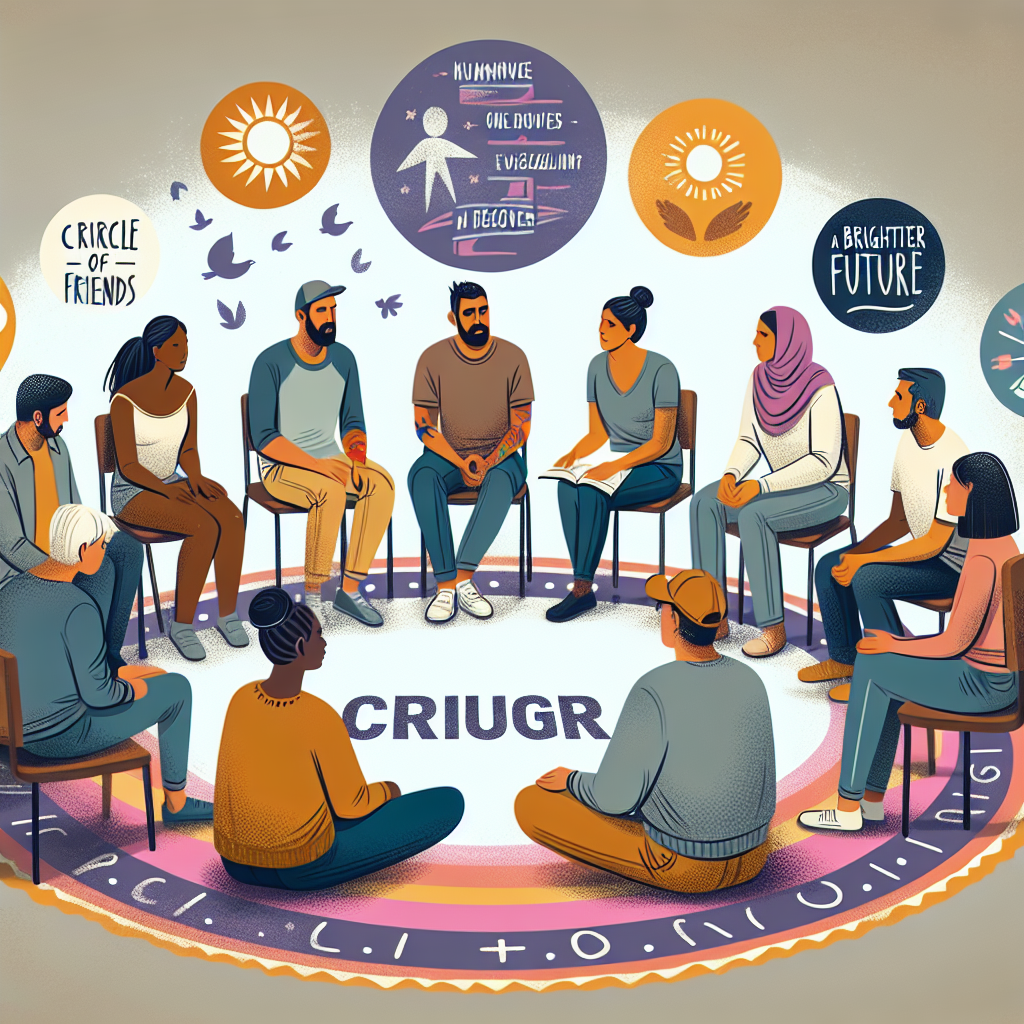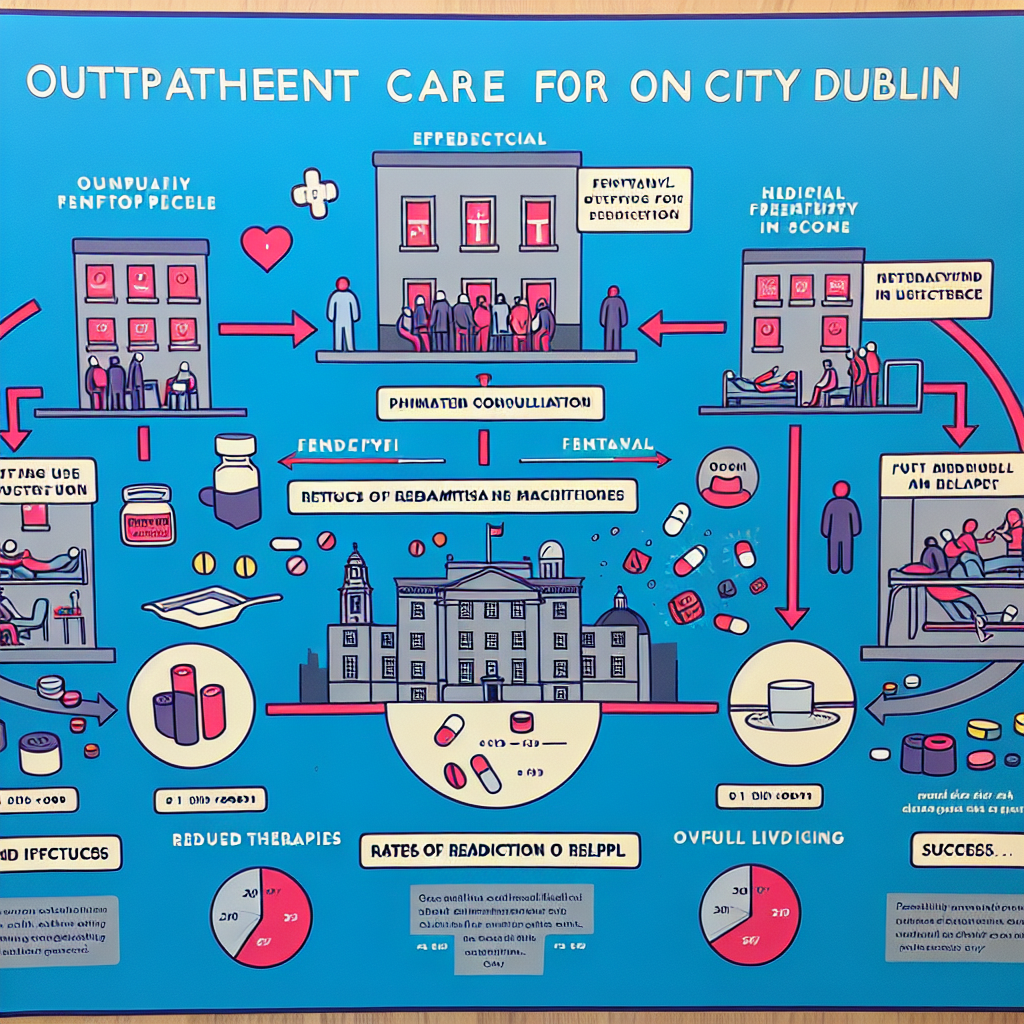-
Table of Contents

“Together We Heal: The Power of Group Support in Fentanyl Addiction Recovery”
Introduction
The Role of Group Support in Fentanyl Addiction Recovery
Fentanyl addiction, a severe and often life-threatening condition, has become a critical public health issue in recent years. As individuals grapple with the physical and psychological challenges of overcoming this potent opioid, the importance of comprehensive support systems cannot be overstated. Among the various forms of assistance available, group support has emerged as a pivotal element in the recovery process. Group support provides a structured environment where individuals can share their experiences, gain insights from others facing similar struggles, and build a sense of community and accountability. This collective approach not only fosters emotional resilience but also enhances the effectiveness of treatment programs by promoting sustained engagement and adherence to recovery plans. By examining the multifaceted benefits of group support, we can better understand its crucial role in facilitating long-term recovery from fentanyl addiction.
The Importance of Group Support in Overcoming Fentanyl Addiction
Overcoming fentanyl addiction is a formidable challenge, but the journey to recovery can be significantly bolstered by the power of group support. Fentanyl, a potent synthetic opioid, has wreaked havoc on countless lives, leading to a surge in addiction rates and overdose deaths. The path to recovery is often fraught with physical, emotional, and psychological hurdles. However, the collective strength found in group support can provide a lifeline for those struggling to break free from the grip of this devastating substance.
One of the most compelling reasons group support is so effective in fentanyl addiction recovery is the sense of community it fosters. Individuals battling addiction often feel isolated and misunderstood, which can exacerbate feelings of hopelessness and despair. In a group setting, participants quickly realize they are not alone in their struggles. This shared experience creates a bond that can be incredibly empowering. Knowing that others have faced similar challenges and are working towards recovery can instill a sense of hope and motivation that is difficult to achieve in isolation.
Moreover, group support offers a platform for individuals to share their stories, struggles, and successes. This exchange of experiences can be profoundly therapeutic. When someone shares their journey, it not only provides them with an outlet for their emotions but also offers valuable insights and coping strategies to others in the group. Hearing about the progress and setbacks of peers can help individuals gain perspective on their own recovery process, making it easier to navigate the ups and downs that are an inevitable part of overcoming addiction.
In addition to emotional support, group settings often provide practical tools and resources that are essential for recovery. Many groups are facilitated by trained professionals who can offer guidance on managing withdrawal symptoms, developing healthy coping mechanisms, and creating a relapse prevention plan. These practical strategies are crucial for maintaining long-term sobriety and can be more effectively implemented with the encouragement and accountability that a group provides.
Furthermore, the structure and routine of regular group meetings can be a stabilizing force in the chaotic life of someone recovering from fentanyl addiction. Consistent attendance at group sessions helps to establish a sense of normalcy and purpose, which can be particularly beneficial during the early stages of recovery when individuals are most vulnerable to relapse. The commitment to attend meetings also reinforces the importance of prioritizing one’s recovery, serving as a constant reminder of the goals and aspirations that motivated the decision to seek help in the first place.
Another significant advantage of group support is the opportunity for individuals to develop meaningful, sober relationships. Addiction often leads to the deterioration of personal relationships, leaving individuals feeling disconnected and alone. In a supportive group environment, participants can form new, healthy connections with people who understand their journey. These relationships can provide a crucial support network that extends beyond the group meetings, offering companionship and encouragement during difficult times.
In conclusion, the importance of group support in overcoming fentanyl addiction cannot be overstated. The sense of community, shared experiences, practical resources, structured routine, and the opportunity to build meaningful relationships all contribute to a more robust and sustainable recovery process. While the journey to sobriety is undoubtedly challenging, the collective strength and support found in a group setting can make all the difference, transforming what once seemed like an insurmountable obstacle into a manageable and hopeful path forward.
How Group Therapy Facilitates Recovery from Fentanyl Addiction
Group therapy plays a pivotal role in the recovery process for individuals grappling with fentanyl addiction. This powerful opioid, known for its potency and high risk of overdose, has devastated countless lives. However, the journey to recovery is not one that must be traveled alone. Group therapy offers a supportive environment where individuals can share their experiences, gain insights, and build a network of encouragement and accountability.
One of the most significant benefits of group therapy is the sense of community it fosters. Addiction often isolates individuals, making them feel alone in their struggles. In a group setting, participants quickly realize that they are not alone; others have faced similar challenges and understand their pain. This shared experience creates a bond that can be incredibly therapeutic. Knowing that others have walked a similar path and are working towards recovery can instill hope and motivation.
Moreover, group therapy provides a platform for individuals to share their stories and listen to others. This exchange of experiences can be enlightening and empowering. Hearing how others have navigated their recovery journey can offer new perspectives and strategies that one might not have considered. It also allows individuals to reflect on their own experiences and recognize patterns or triggers that they may not have been aware of before. This self-awareness is crucial in the recovery process, as it helps individuals understand the root causes of their addiction and develop coping mechanisms to address them.
In addition to emotional support, group therapy also offers practical benefits. The structure of regular meetings provides a routine that can be stabilizing for individuals in recovery. Consistency is key in overcoming addiction, and knowing that there is a scheduled time to connect with others can help individuals stay committed to their recovery goals. Furthermore, group therapy often incorporates various therapeutic techniques, such as cognitive-behavioral therapy (CBT), which can equip individuals with tools to manage cravings and prevent relapse.
Another critical aspect of group therapy is the accountability it fosters. In a group setting, individuals are encouraged to set goals and share their progress with the group. This accountability can be a powerful motivator, as individuals do not want to let themselves or their peers down. The group becomes a source of encouragement and support, celebrating successes and providing guidance during setbacks. This collective effort can significantly enhance an individual’s commitment to their recovery journey.
Additionally, group therapy can help individuals rebuild their social skills and relationships. Addiction often strains or severs personal relationships, leaving individuals feeling disconnected. In a group setting, participants practice communication, empathy, and conflict resolution skills, which are essential for rebuilding healthy relationships. The support and feedback from the group can also boost self-esteem and confidence, which are often eroded by addiction.
While group therapy is not a one-size-fits-all solution, it is a valuable component of a comprehensive recovery plan. It complements other forms of treatment, such as individual therapy and medication-assisted treatment, by providing a supportive community and practical tools for recovery. The journey to overcoming fentanyl addiction is undoubtedly challenging, but with the support of a group, individuals can find strength, hope, and the resilience needed to reclaim their lives.
In conclusion, group therapy offers a unique and powerful avenue for individuals recovering from fentanyl addiction. Through shared experiences, emotional support, practical tools, accountability, and social skill development, group therapy facilitates a holistic approach to recovery. It reminds individuals that they are not alone in their struggles and that, together, they can overcome the challenges of addiction and build a brighter future.
Q&A
1. **Question:** How does group support contribute to the emotional well-being of individuals recovering from fentanyl addiction?
**Answer:** Group support provides a sense of community and belonging, reducing feelings of isolation and loneliness, which are common in addiction recovery. It offers emotional support, encouragement, and shared experiences, helping individuals feel understood and less alone in their journey.
2. **Question:** What are the practical benefits of group support in the context of fentanyl addiction recovery?
**Answer:** Group support offers practical benefits such as accountability, where members can help each other stay committed to their recovery goals. It also provides a platform for sharing coping strategies, resources, and information about treatment options, which can enhance the overall recovery process.
Conclusion
Group support plays a crucial role in fentanyl addiction recovery by providing emotional encouragement, shared experiences, and a sense of community, which can significantly enhance motivation and accountability. It fosters a supportive environment where individuals can openly discuss their struggles and successes, reducing feelings of isolation and stigma. Additionally, group support can offer practical advice and coping strategies from peers who have faced similar challenges, contributing to sustained recovery and relapse prevention. Overall, the collective strength and understanding within group support systems are vital components in the comprehensive treatment of fentanyl addiction.



